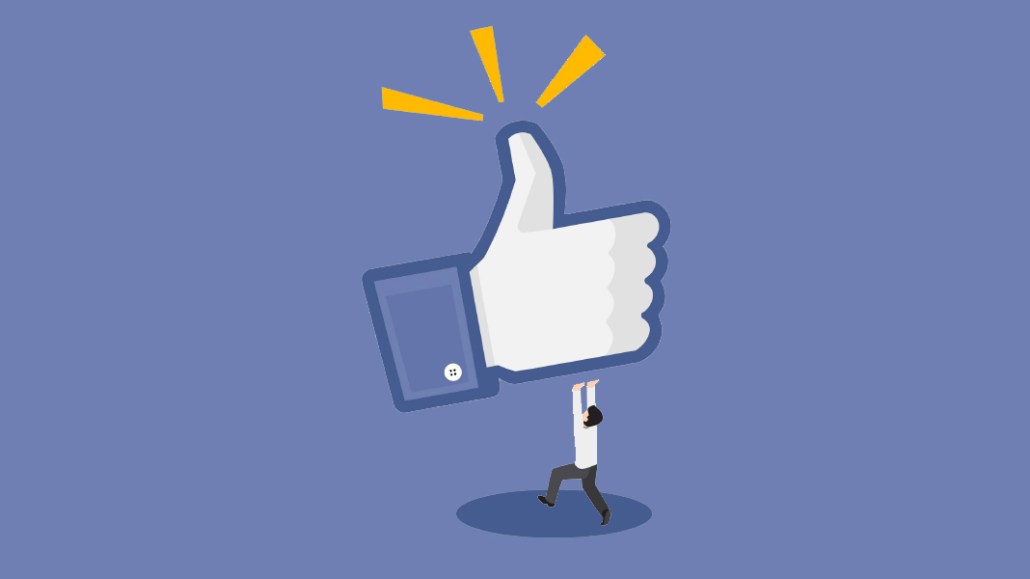For small publishers, Facebook is often a force for good — and frustration

When Fatherly CEO Mike Rothman wanted to get his parenting startup verified, he completed Facebook’s official forms and waited. Nothing happened. He asked one of his company’s investors to call in a favor. Nothing. Finally, he asked a friend at a bigger publisher to pass the request to that publisher’s Facebook rep. Finally, Fatherly is the proud bearer of the coveted checkmark.
Small publishers have a love-hate relationship with Facebook. They love it because it can turbo-charge audience growth, but they hate perpetually being the last to know about changes — and not having much luck getting help.
“The great thing about Facebook is it’s available to every publisher, and it’s been a free way for us to get a lot of great traffic and engage with a fan base,” says Kyle Taylor, CEO of The Penny Hoarder, a personal finance startup. “But I do think there are very different rules for small and medium-sized and large publishers. Facebook makes a billion changes a day, and it often feels like we’re trying to catch up.”
“We have no relationship with [Facebook],” adds David Plotz, CEO of Atlas Obscura, a niche travel site. “It’s all guesswork.”
Small publishers often speak of Facebook with a sigh. But some point out that if they knew more about how Facebook worked, they might have more confidence in the platform and, therefore, put more effort into it. “It’s a shame because we’re often the ones doing unique things,” Taylor says.
Washingtonian, for instance, tried to do a weekly chat on the platform with its food critic, but it flopped because it didn’t get any exposure. “I don’t think anyone was seeing it in their feeds,” senior editor Andrew Beaujon says. “As an editor at a local publication, I would have loved to have known who to go to, to get some help.”
Of course, smaller publishers typically don’t have a lot of resources to devote to social media in the first place, which is a limitation on their end. (“You’re talking to Washingtonian’s Facebook team here,” Beaujon quips.) Facebook points out that it has plenty of resources for small- to medium-sized publishers and has started some initiatives aimed at local publishers this year.
Publishers are often left to join the Facebook groups and do informal networking on their own. Every two months, Fatherly’s Rothman convenes an invite-only group of fellow independent publishers, which he calls “the illuminati,” to trade stories and tips over beers.
But there’s a glass-half-full side of being small. Not having the option of being a first-mover also means not wasting time on things that won’t move the needle.
“Not being a guinea pig does allow us to sit back and wait,” Plotz says. “It also could mean there are big opportunities we don’t get to be a big part of. When I hear big companies talk about their Snapchat strategy, I think, ‘Well, I wish I had that problem.’ But I also suspect it’s a bigger hassle to deal with. You’re as subject to the platforms’ agenda as you are to your own.”
More in Media

In Graphic Detail: The scale of the challenge facing publishers, politicians eager to damage Google’s adland dominance
Last year was a blowout ad revenue year for Google, despite challenges from several quarters.

Why Walmart is basically a tech company now
The retail giant joined the Nasdaq exchange, also home to technology companies like Amazon, in December.

The Athletic invests in live blogs, video to insulate sports coverage from AI scraping
As the Super Bowl and Winter Olympics collide, The Athletic is leaning into live blogs and video to keeps fans locked in, and AI bots at bay.








